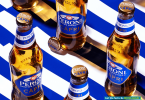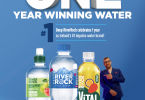Wine consumers pay 624% more excise
Since 2008, the independent off-licence industry has lost 3,000 jobs and NOffLA is calling on the Government to protect the remaining 5,800.
NOffLA also released the results of its 2015 members survey which shows that 50% of off-licences reported a decline in turnover in 2014 when compared to 2013 and 51% of off-licences across Ireland will struggle to remain open if the current level of excise is increased in Budget 2016, jeopardising thousands of jobs.
52% of respondents reported a decrease in wine sales of up to 30% in 2014 while 39% saw a decline in beer sales and 51% a decline in sales of spirits of up to 30%.
Some 46% cited the current level of excise, as increased in 2013 and 2014, as the main reason for a decline in business. 78% of respondents expect their turnover to either remain the same or decrease in 2015. If excise duty is increased in Budget 2016, 51% will struggle to remain open and 44% will be forced to reduce staff by at least one member.
Of those asked, 70% stated they would hire one or more additional staff members and 42% would increase staff pay if the excise increases of Budget 2013 and 2014 were reversed.
In its pre-Budget submission to the Department of Finance, NOffLA has called on the Government to:
- Reverse the Budget 2014 excise increases on alcohol. Excise in Ireland is currently 624% higher than the EU average for wine, 298% for beer and 243% for spirits. As a result of these taxes, Ireland is second only to Finland in having the highest taxes on alcohol in the EU
- Restore parity to wine taxation in relation to domestic alcohol as the excise on a bottle of wine is on average 82 Cent dearer than the equivalent excise on cider and beer
- Reintroduce a ban on the below-cost selling of alcohol. Banning the retailing of alcohol at below-invoice cost price will ensure that retailers cannot reclaim 23% of the loss in their VAT return, saving the State an average of €24 million each year as well as ensuring alcohol is retailed in a responsible manner
- Establish tighter control on out-of-state imports in terms of VAT and excise collection thus ensuring out-of-state and online retailers cannot sell directly to Irish consumers without paying the required tax and VAT. Such controls would ensure online retailers are fit for purpose, tax compliant and meet the same licensing obligations as domestic retailers.
86% of independent off-licence retailers do not believe the Government is doing enough to support SMEs.
NOffLA’s Government Affairs Director Evelyn Jones said, “While there has been a general improvement in the economic climate, our members like other SMEs all across Ireland, are operating in very challenging conditions. The 2015 Members Survey clearly illustrates how these challenges are further aggravated by Government policy in terms of taxation and an uneven landscape where large multiple retailers can benefit from heavily discounting alcohol to drive footfall”.
“The disparity in the taxation of wine when compared to other alcohol products is a clear example of how legislation needs to reflect the trading environment, supporting SMEs and encouraging the responsible retail of alcohol. Ireland is currently the most expensive country in Europe in relation to excise on wine which is stunting the ability of SMEs all over Ireland to invest in their businesses in the short, medium and long term. The punitive levels of taxation make it impossible for independent retailers to forecast with any certainty in terms of expansion and investment in new employees, their premises and new products thus inhibiting their long-term viability.
“Furthermore, as highly trained and responsible local retailers, we’re calling on the Government to reintroduce a ban on below-cost selling of alcohol. Apart from the significant annual saving to the exchequer of €24 million, the ban could be introduced at no cost to the exchequer and significantly contribute to addressing the irresponsible retailing of alcohol”.
Evelyn Jones concluded, “Budget 2016 is an opportunity for Government to truly deliver on its promise of supporting SMEs and by extension Irish communities all across Ireland. Such a delivery would serve to invest in not only the economic sustainability of Irish communities, but also the health and well-being of the broader nation.”








